That ’70s Show is a beloved sitcom due to its colorful ensemble of characters and the nostalgic elements it brings to life from the most groovy decade of all time. We feel a sense of comfort and familiarity when we get to join Eric, Jackie, Kelso, Hyde, Fez, and Donna in Forman’s basement.
Lasting from 1998-2006, That ’70s Show has been on long enough for fans to connect to the Point Place gang as they grow to love “hangin’ out down the street” while doing “the same old thing we did last week.” Yet as wonderful as the series is, it does come with its own set of faults that simply wouldn’t fly in today’s day and age. What are some of these faults that were played off as jokes back in the day? Read the list below to find out!
ERIC AND BUDDY KISS
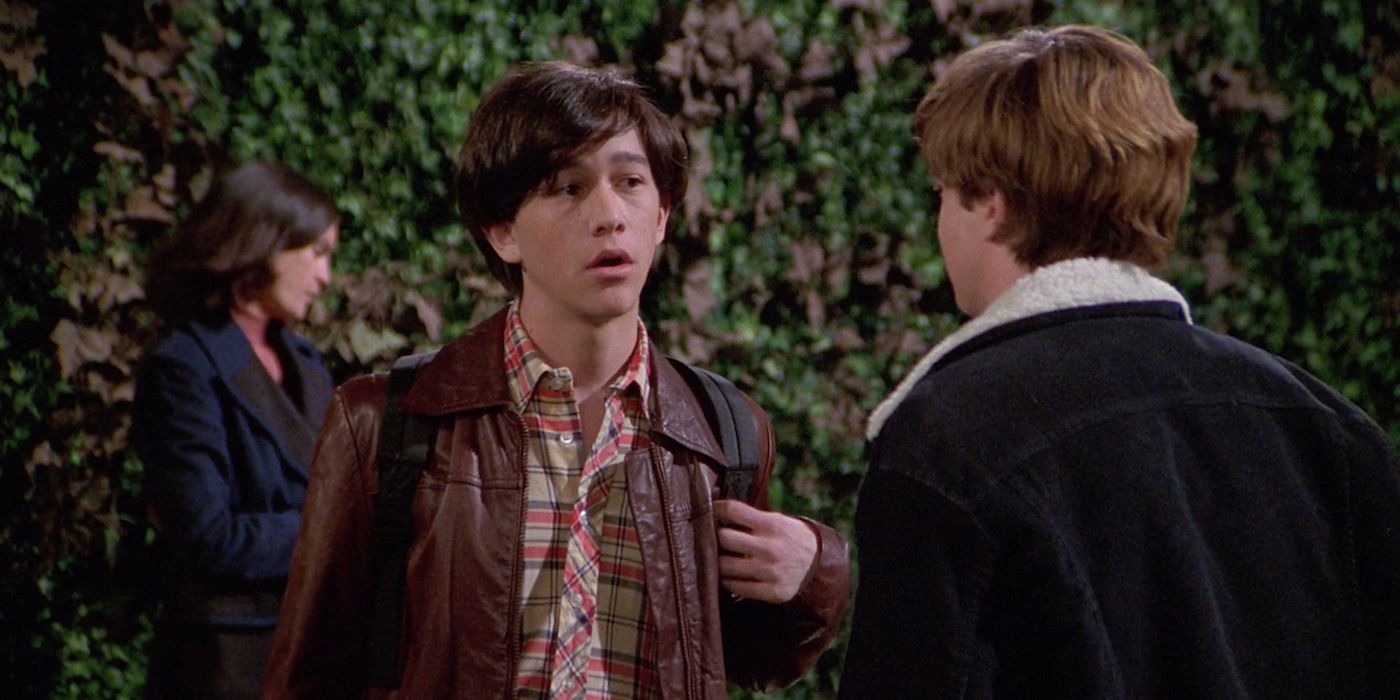
It’s hard to believe that at one point in time in the land of the late 1990s, having two men kiss each other on television was considered to be “groundbreaking.” In the scene, Levitt’s character mistakes Eric as gay, so he leans in to kiss him.
Eric responds by having a full blown panic attack (which is of course played for laughs) and the remainder of the episode is dedicated towards Eric trying to “prove his masculinity” because god forbid someone mistakes his sexual preference. Everything about this episode is cringe-worthy and outdated, and you can’t even make the excuse that it’s a 70s show because it came out in the late 90s!
DEGRADATION OF WOMEN

In the season 1 episode titled “Battle of the Sexists”, Eric keeps losing to Donna in sports-related activities. When she creams him in basketball, he feels as though all of his masculinity is being stripped away and when she beats him in air hockey he feels so inferior that he starts to imagine himself in a dress complete with newly added breasts.
Although Eric is supposed to be the most progressive of the bunch when it comes to the boys in their basement crew, it’s clear that he feels as though being feminine and girly is the lowest form of humanity. He is embarrassed, so therefore he feels like a girl. It’s as though being a girl is the most insulting and degrading thing one could be.
TREATMENT OF FEZ AS AN OUTSIDER
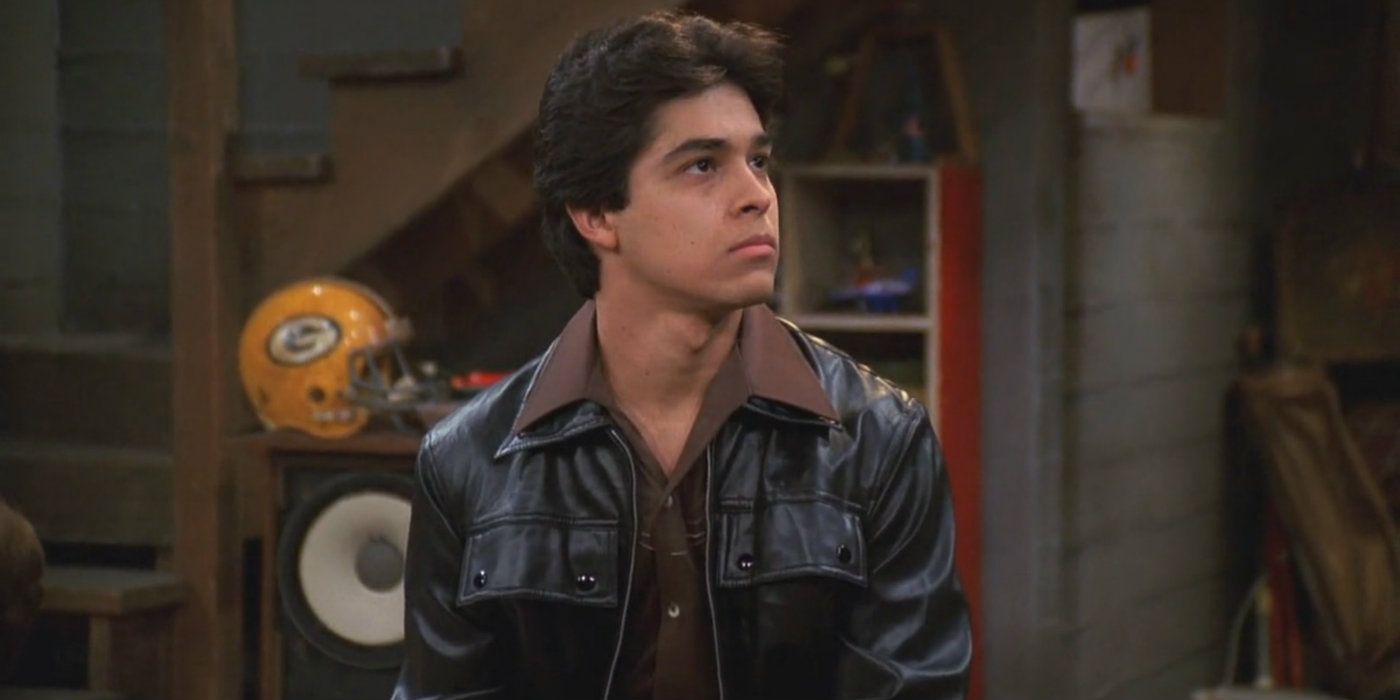
Poor Fez is constantly being picked on and ridiculed by the people who are supposed to be his best friends, simply because he is known by the group as “The Foreigner” as they so often call him. Although audiences see Fez as a fan favorite due to his smiley nature and slight naivety, the dialogue Fez is given often resorts to stereotypes.
Overall, we never did quite figure out what Fez’s background was and where he came from. In a way, this erases Fez’s story as a character when the writers could’ve chosen to make him more complex.
TREATMENT OF LAURIE
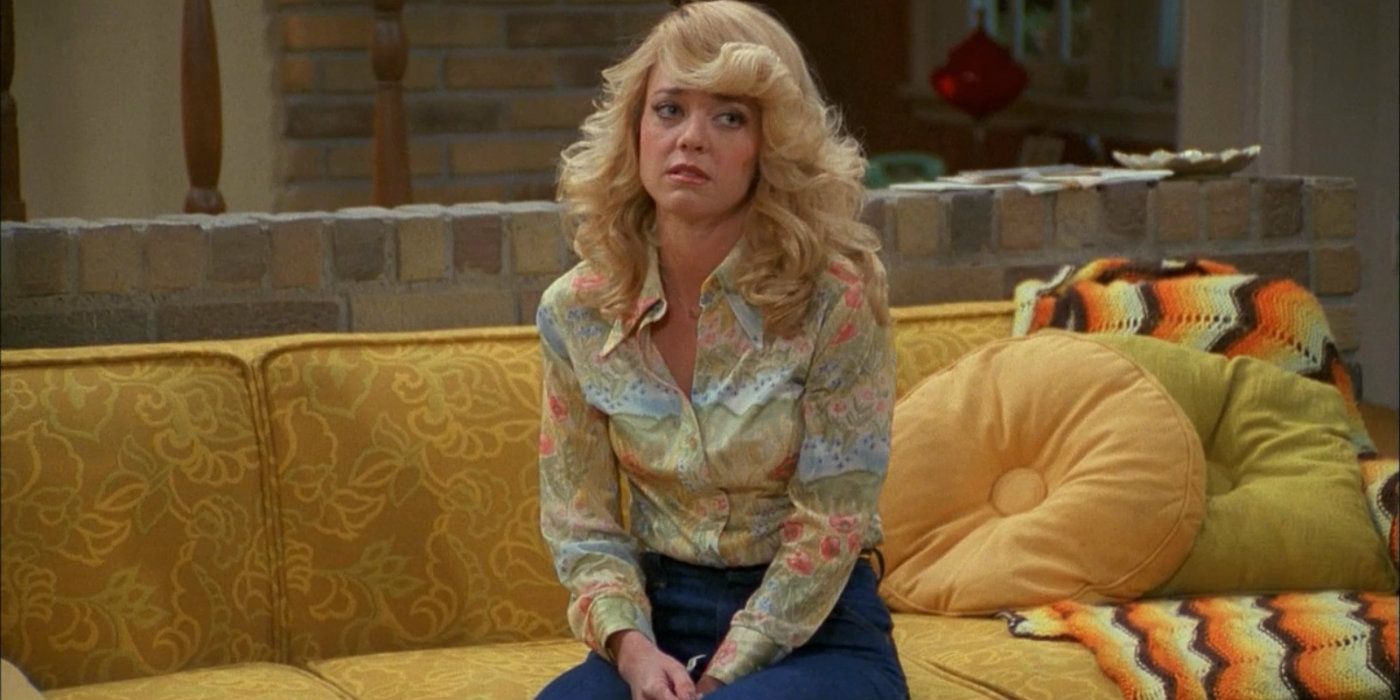
Laurie Forman is accused by everyone in Point Place as being a “slut” and a “whore” even by her own family members. No one is out to defend Laurie and no one wants to check up on her well being despite her clearly self-destructive behavior. Laurie is a young girl who is clearly lost, yet no one seems to see her as a human being. To everyone else, she is just a sexual object.
Her character is fully one-dimensional, even by sitcom standards. In one scene, she and the family are all sitting at the dinner table and Eric calls her “cheap” and “free” as though she’s a prostitute. Neither her mother or father speak up to scold Eric for his words, leaving Laurie pretty much alone with no one to turn to. Perhaps Red is the only character on the show who truly loves her and sees her as more than an object, which is oddly refreshing to witness.
JACKIE IS OBJECTIFIED BY THE BOYS
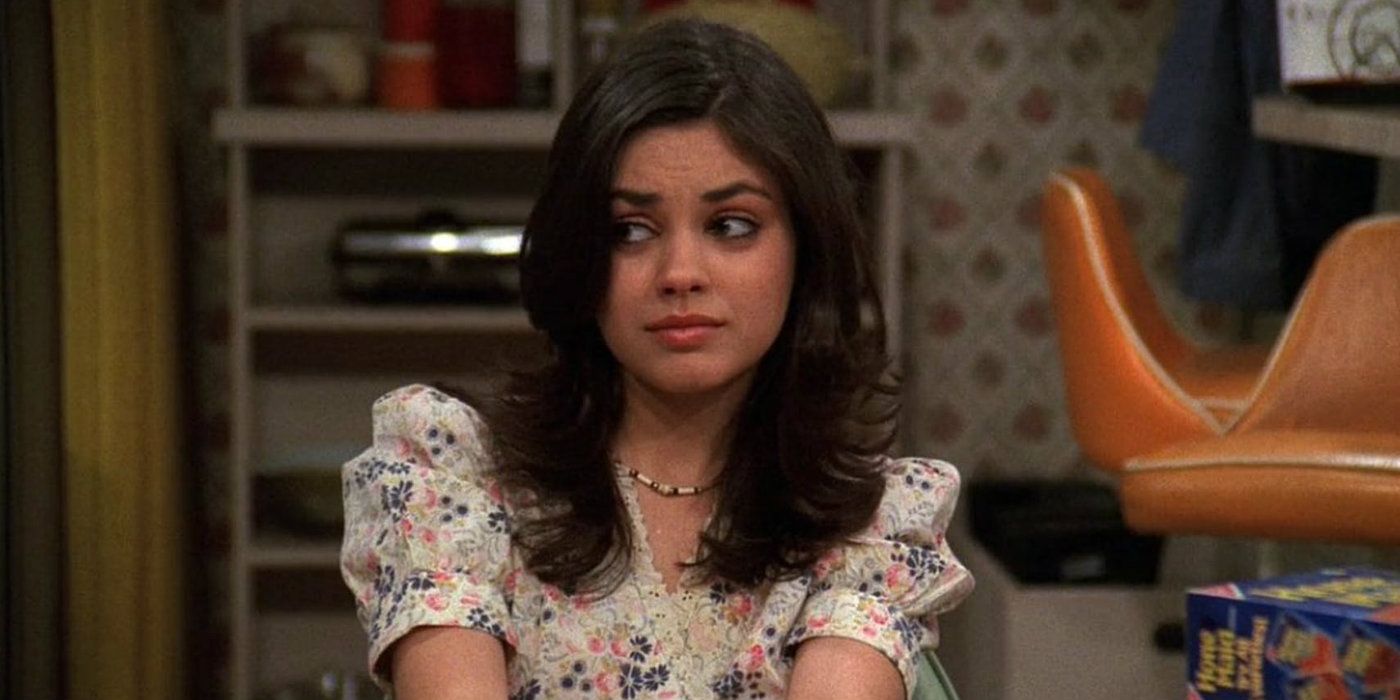
In the episode where Hyde decides to finally tell Kelso that he’s romantically involved with Jackie, Eric tries to persuade Hyde against this because according to Eric, “Jackie is the devil.” Hyde responds by saying “What can I say? She’s hot.” (A great way to defend your girlfriend, by the way). Hyde then tells Eric to fantasize about Jackie in a bikini with a muted voice so she can’t be heard.
It isn’t until Jackie’s voice is taken away from her that Eric realizes Jackie’s beauty. Therefore, the boys only find her desirable and attractive if she’s stripped away from having a voice. They find pleasure in objectifying her, gladly dehumanizing the girl who is supposed to be their friend/girlfriend.
THE MISTREATMENT OF ERIC
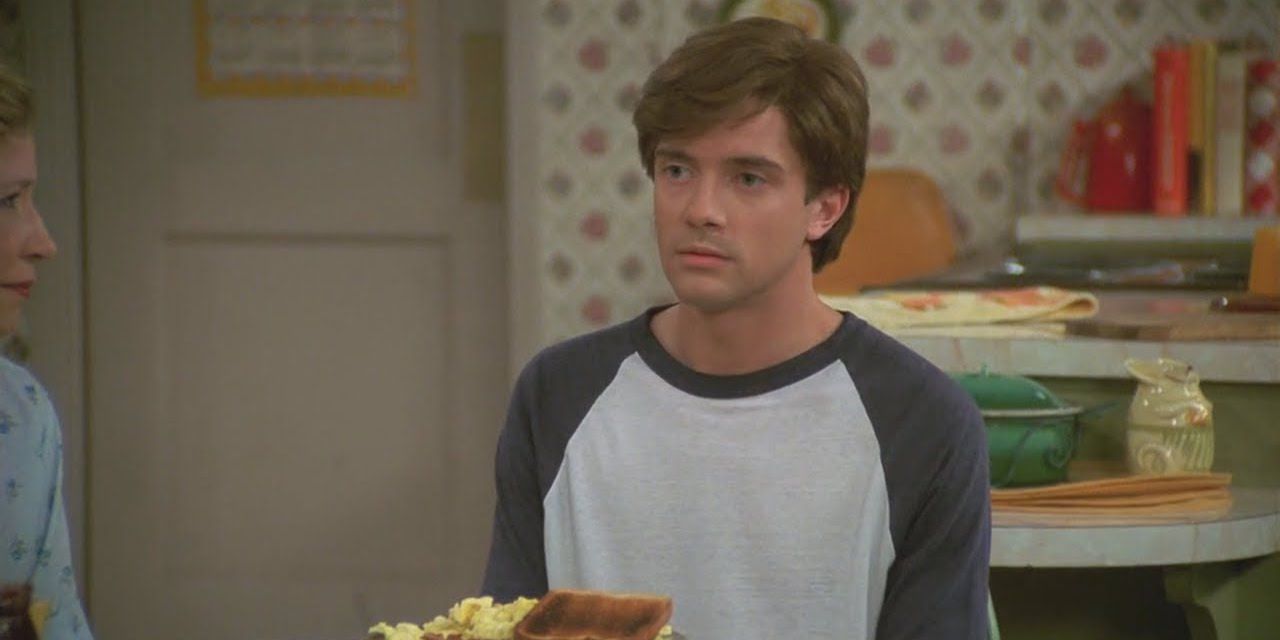
Eric Forman is often mistreated by his friends and loved ones for lacking the conventional and ideal depiction of what a man is supposed to be like in the 1970s. Eric is scrawny, he loves Star Wars and reading, he is terrible at sports, and he is gentle in nature.
None of this seemed to fly for the people he surrounded himself with. Although everyone tolerates his unique personality type, it seems as though he would have more respect within his group of friends and family if he just acted more “manly” in the conventional sense. This is unfortunate and most likely wouldn’t connect with audiences in today’s society.
RED AND ERIC’S RELATIONSHIP
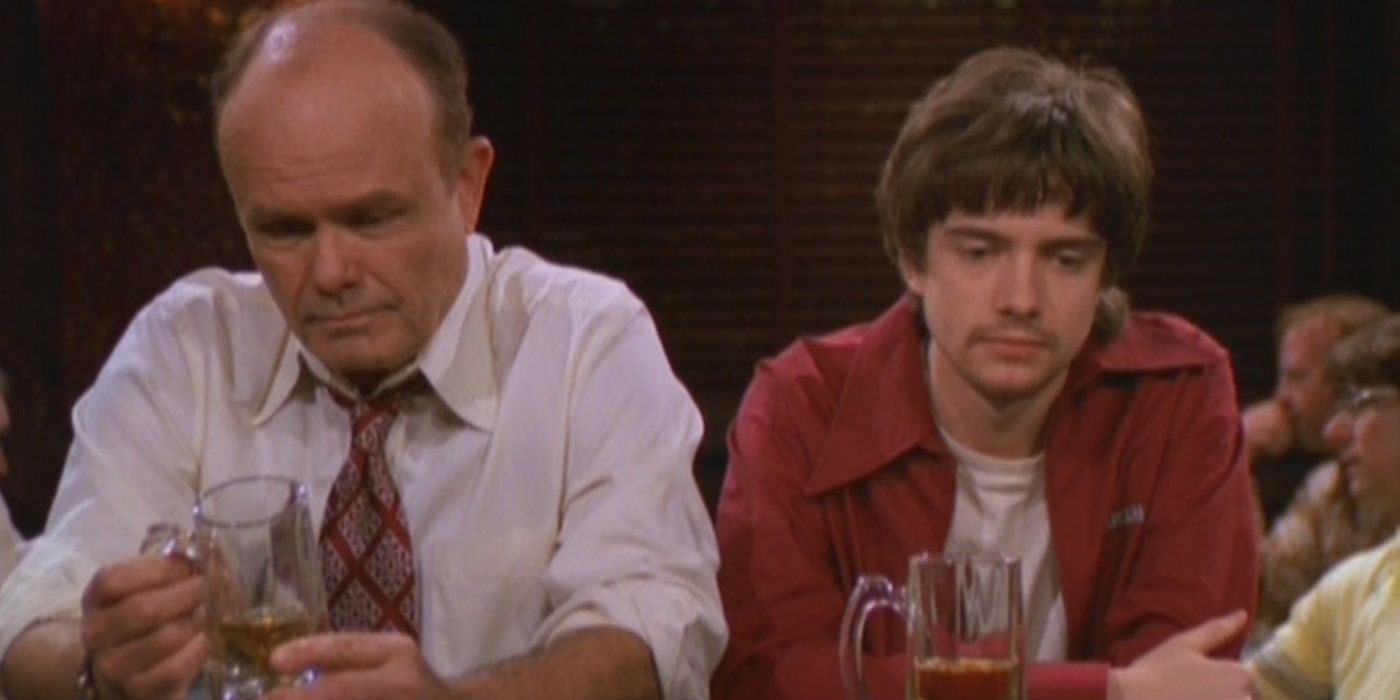
Although Red is a fan favorite on That ’70s Show and undoubtedly delivers some of the best catchphrases on the show, there is no denying the fact that his treatment towards his son Eric is often unfair and cruel.
Red consistently threatens to beat Eric up (even though this is supposed to be a hilarious joke), he calls his own son a sissy instead of appreciating his gentleness, and he verbally expresses quite often how he sees his son as a failure. Although these moments are supposed to be played for laughs, they reveal a horrible representation of how fathers should be treating their sons.
FAT SHAMING
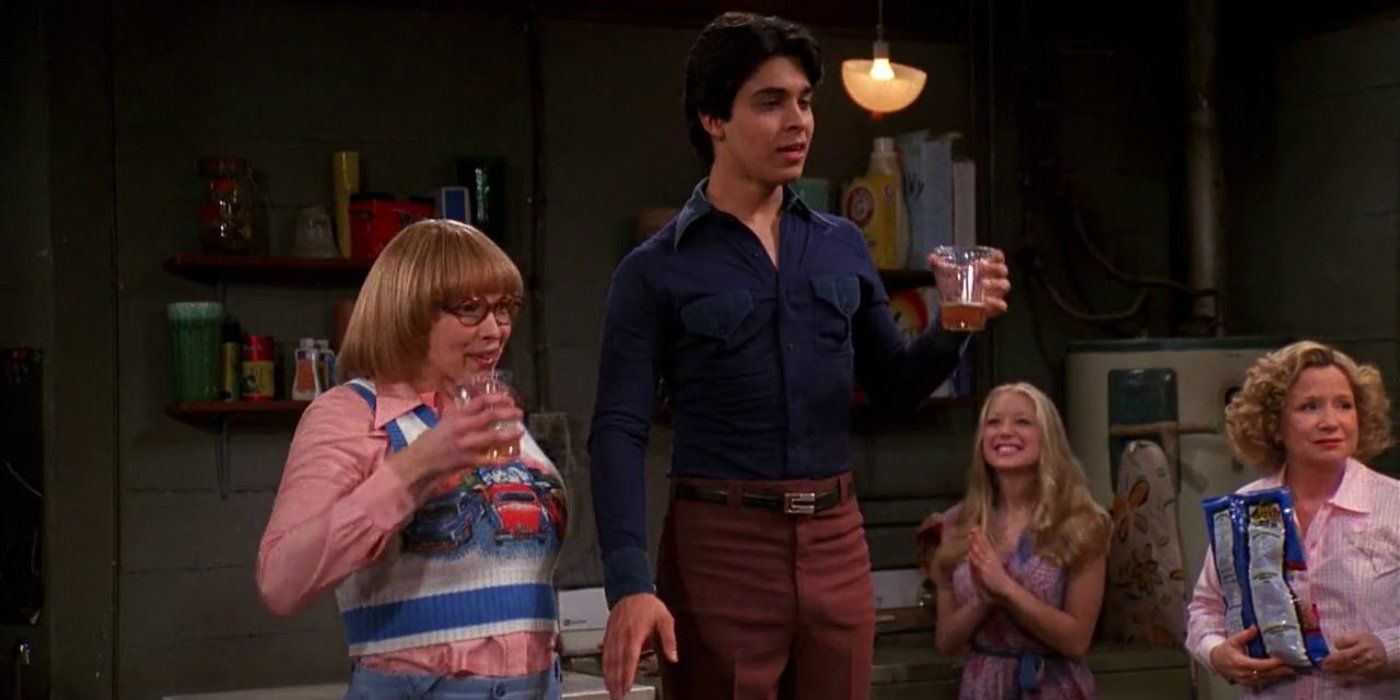
Fat shaming isn’t an uncommon theme on That ’70s Show, and this is especially the case with the character known as “Big Rhonda.” Rhonda is a kind-hearted character (which is a rare breed on That ’70s Show), who happens to be slightly bigger than most of the women we are used to seeing on the sitcom filled with glamorous celebrities.
Rhonda is often the butt of the joke due to her weight and less-than-dainty demeanor. Chances are that nowadays this fat-shaming would be considered a cheap and archaic attempt at humor and wit. If only we got to see more of Rhonda because she brought a sense of benevolence to the show which could desperately use some.
MIDGE AS THE DITZY HOUSEWIFE
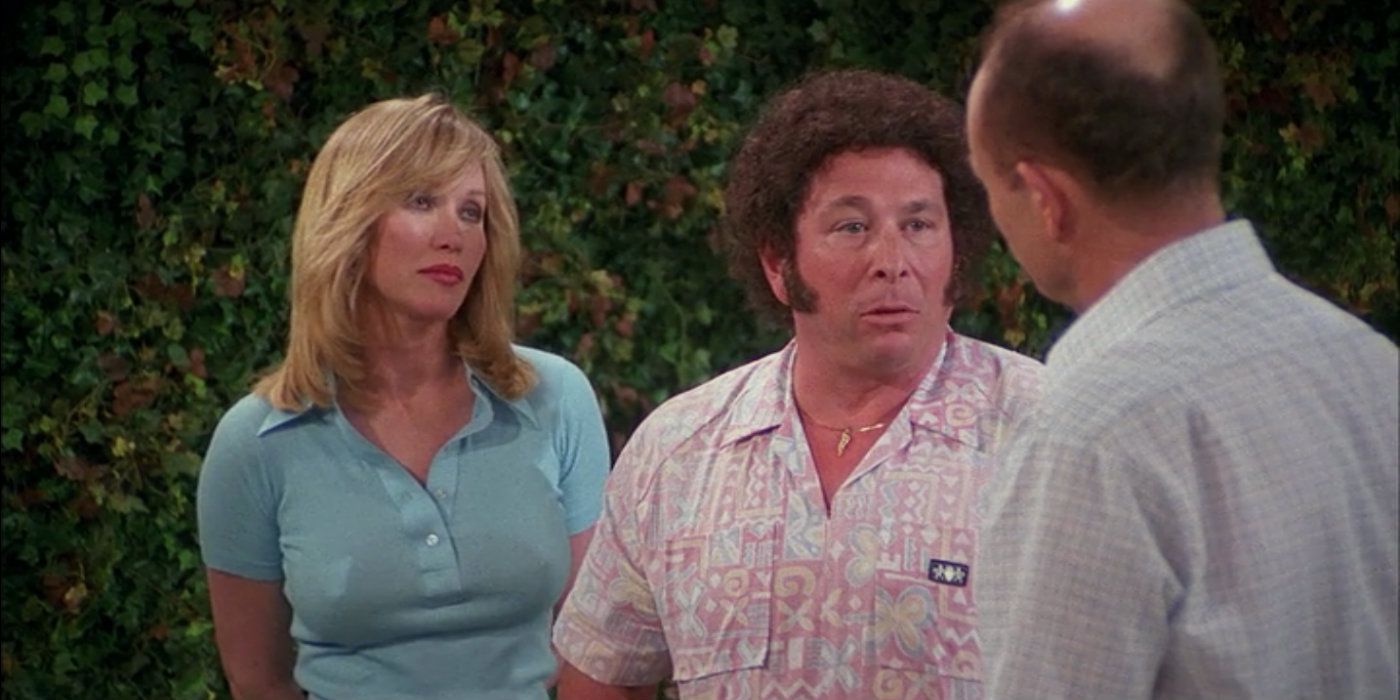
Midge, aka Donna’s mother, represents your typical ditzy housewife that TV Tropes loved to flaunt in the earlier days of television. Now, this trope feels incredibly outdated and it leans towards being rather sexist as well. She also falls into the category of being your typical “trophy wife” where she seemingly only exists to be displayed like an object for her husband, Bob.
Everyone rolls their eyes at Midge for her unconventional ways of thinking (especially Kitty), and she is constantly being discouraged by society to grow and improve because everyone loves to put her down.
KELSO AND LAURIE VAN SCENE

In the season 2 episode titled “Red’s Last Day” there is a scene that has sparked controversy involving Kelso and Laurie engaging in what seems to be a clear example of non-consensual sex. In the scene, Laurie comes in and has sexual relations with Kelso despite the fact that he tells her “No.”
As this occurs inside the van, Hyde takes full pleasure in the situation by grabbing a lawn chair from right outside as he listens in on the scene with a satisfied grin on his face. In what world is this considered funny? It is a joke that would never fly in today’s society and we’re still not quite sure how this wasn’t a bigger issue back then.




